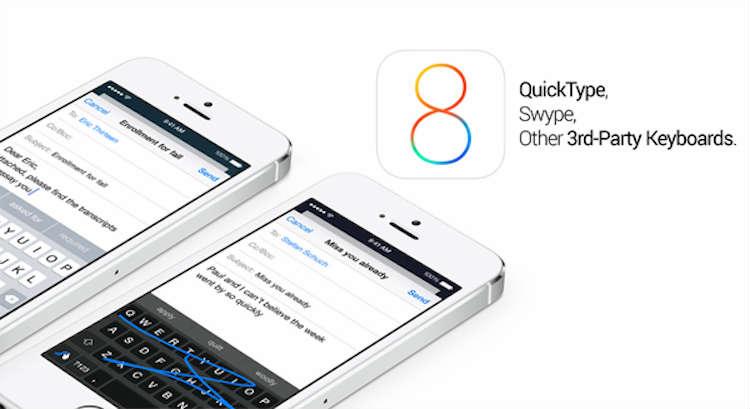
Finally, Apple opened up iOS. Sort of. Way more than it ever has been before, so that’s certainly worth something. While some might believe it had to happen eventually, I know that there were a lot of people out there who thought it would never happen. Apple’s “walled garden” had become a defining element for the Cupertino-based company’s mobile operating system, the complete opposite of Google’s own mobile initiative. They filled specific roles at each end of the spectrum, and the world was balanced.
But, a these things tend to do, both points started to converge on one another. As Android grew up, it took some elements from iOS. And, as iOS began to stagnate, the mobile OS took pieces from other platforms while getting a major redesign to its aesthetic approach. While iOS 7 was all about the look and feel of the operating system, iOS 8 is all about the features that people have been demanding for years now.
Better late than never, I guess. That’s the silver lining, right? For the folks out there who have been waiting for iOS to get a bit more open, to offer more features that Android has been offering, the wait is finally over. Apple has listened, and now iOS is far more advanced than it ever has been. That’s a win, whether you believe Apple’s “just copying Google” or not.
Plus, there are bigger iPhones now, too. Win-win.
One of the new features to iOS 8 is third-party keyboards. This is one of the things that Android has had for years, and a feature that I imagine has been requested from Apple for just about as long. Being able to replace the stock keyboard with something else, something that has a bit more functionality baked in, or just lets you input different characters, swipe a finger or whatever else is pretty great. Options usually are.
So, as you can imagine, when iOS 8 launched there were a plethora of third-party options available within the App Store right from the start. The list is still growing, but obviously the big names got most of the attention right out of the gate. Swype, Fleksy and others all rose through the ranks as people installed them on their devices and tried them out.
And here I am, still using the stock keyboard.
I’ve always been a big fan of the stock Apple software keyboard. I think it’s been just about perfect, as long as you don’t take into account some words just refusing to work with you (like “we’ll,” when you really want “well”) while you type. It has always been able to keep up with me, and that’s a major bonus, too.
I can say the same thing for Microsoft’s stock keyboard for Windows Phone. I believe both of these ‘boards are pretty identical in functionality and usefulness. They’re both great. The same, however, cannot be said for the stock keyboard on Android. It hasn’t always been the best, and I think this is one reason why third-party keyboards were/are so popular on the mobile OS. They rose in popularity because the stock variant, and especially the proprietary keyboards that companies like Samsung, HTC and others offered were just not all that great.
I tried out the third-party keyboards for iOS, and I just couldn’t sustain them. I removed them all a few days later and went back to the stock keyboard. I just don’t think iOS needs them, to be honest. And while I think it’s great that Android has support for them, and most of them are pretty fantastic in what they offer, I’ve always just stuck to the Android stock keyboard there, too. Even when it wasn’t very good. I’ve never been one to use a third-party keyboard for long. I know, I’m a crazy person.
Are you a fan of third-party keyboards? I know a lot of people swear by them, and they are the only ‘boards they’ll use, so I’m wondering if you feel the same way, or if you prefer the stock variant. Have you been using a third-party keyboard for iOS 8? If so, which one(s)?